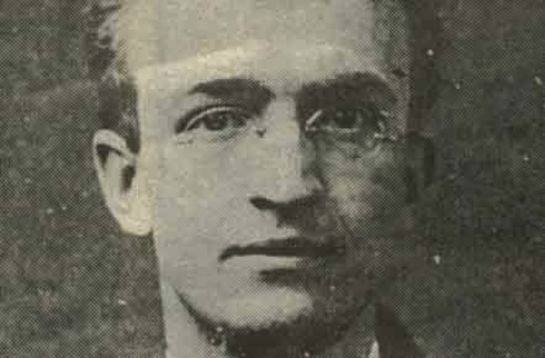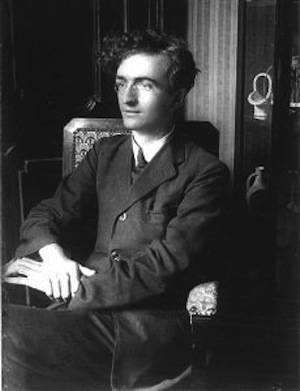The Liberalism of Piero Gobetti
To better understand the roots of Italian radical liberism, New York University's Casa Italiana Zerilli-Marimò held, on May 5, a conference about Piero Gobetti, which opened with a letter of greetings by Carla Gobetti, his granddaughter and president of the Centro Studi Piero Gobetti.
“Liberalism is a term that is often abused”, said Casa Italiana director Stefano Albertini, during his opening remarks. “It seems that everyone has become liberal today”.
The discussion began with a speech by Riccardo Viale, director of the Italian Cultural Institute of New York. “Gobetti is frequently unknown as a writer, and only recently have international and European studies begun about him. He was among the fathers of liberal-socialism, and his ideas were helpful to Carlo Rosselli in founding the Giustizia e Libertà movement in 1929. He was an anti-conformist, brave, with a difficult character defined by Norberto Bobbio as 'incandescent lava'. Similarly to Rosselli, he followed closely the ideas of Gaetano Salvemini, who denounced the deep separation between the legal country and the actual reality of the country: Gobetti answered this dilemma by publishing 'La Rivoluzione liberale. Saggio sulla lotta politica in Italia'. According to him, it was necessary to bring 'liberality' to the institutions created with the Italian Unification. At the time he was in Turin, a city undergoing a strong cultural turmoil, where he was able to meet, among others, Saragat, Buozzi, and Lombroso. Many tend to differentiate between Gobetti and Rosselli: the former was more of a theorist, a political philosopher, enclosed within a provincial environment, while the latter was an economist, open to the world. Rosselli and Gobetti can be separated under the epistemological, methodological and ethical aspects. Epistemologically, they were both against the dogmatism of political thought, believing in the need of applying to real processes. According to Gobetti, historical processes were a result of individual actions applied to political projects. A critic of Mazzini, whom he believed was too tied to the English political thought, Gobetti's inspirations were Gianbattista Vico, Alfieri and Cattaneo. Rosselli, on the contrary, was closer to foreign authors like Sorel, Weber and Proudon.
Methodologically, they both pursued the methodologic individualism of Salvemini, opposing any holistic approach. For Gobetti, the method, the operative paradigm, was freedom: there is no such thing as a free country, but only free people. Freedom is the heart of the Gobettian analysis also ethically: it is the main principle of conduct in obtaining equality.” According to Viale, what Gobetti didn't analyze in depth is the definition of the role of the institutions: “Should they intervene at the beginning of the politica process, establishing the premises for the free conduct of every person, or should they correct the final results?” Viale concluded his talk by underlining how Gobetti and Rosselli never enjoyed success in America, a land where political thought is closer to the instrumental rationalism à la Machiavelli.
James Martin, co-director of the 'Global Media and Democracy' Study Center of the Department of Politics at the University of London, explained how, after his death, Gobetti was recognized as inspirer of many movements: liberalism, socialism, communism. However, he intended liberalism as a political movement and not as a form of government: he saw liberty in a political sense and not economical; he wasn't concerned about the consumer's choice, the free market, and private property. He was concerned about the freedom of generating a political space: freedom as a public and collective good. The Italian state had been imposed on its citizens, and there had never been a true political battle, which is the first step in cohabitation in accordance to freely agreed upon rules. The Russian revolution of 1917 was seen by Gobetti as a liberal movement, marking the end of the Ancien Regime. Liveral ideology is a persuasive force more than a fixed ideology. He saw himself more as a historian than a political actor. He wanted liberalism to become a political philosophy in order to redefine the idea of liberty. He wasn't a systematic thinker because he mainly focused on linking different areas to a common project under political action. He was an anti-fascist because in fascism he saw the obliteration of every liberal principle. He died too young to complete his political thought.
Niamh Cullen of the University College of Dublin described Gobetti's life in Turin and his move to Rome, offering the public a clear picture of the cultural texture in which he was trained: Piedmont, at the time, was the most European of the Italian regions and Gobetti felt the impulse of transforming Italy in a modern nation, completing the civilization process. Disappointed by the failure of the 1920 risings, he was worried that the collective actions would be organized responsibly.
David Ward, from the Department of Italian Studies of Wellesley College, analyzed the ties between Gobetti's polical activism and Alfieri's political thought. Nadia Urbinati, from the Department of Political Science at Columbia University, underlined how Gobetti's analysis of liberalism is almost unique, for it was proposed from a new point of view, the prospective of failure: he believed in the connection between liberal institutions and moral culture, but didn't aim at any form of transcendence. On the contrary, he was deeply tied to immanentist historicism. Under this point of view, according to Urbinati, he was a true modernist who saw conflict and political battles as an indomitable element of the state, the founding moment in which opposites meet and oppose each other freely. He opposed himself to fascist corporatism for the homogeneity it created, and was interested in protestantism, which he saw not only as a religion, but as the incarnation of contemporary life: only the countries with a protestant tradition had been able to develop a liberal society: in Italy the philosophic and political traditions of authors such as Machiavelli and Alfieri could, however, fill the voids created by the absence of protestantism. In Nadia Urbinati's reading, Gobetti was a real 'political animal'.
The conference was closed by Stanislao Pugliese, of the Department of History at Hofstra University. His analysis allowed the inclusion of Gobetti in the picture of antifascist opposition. He saw fascism as the true insult to modern civilization, the expression of the frustrations and aspirations of the Italian middle class. To cure Italy from fascism, it was necessary to review the basis of its historical and social context.
The conference allowed to elaborate on an author frequently undervalued after World War II; and yet he was among the few who saught a typically Italian liberalism. Therefore the question that remains is how the Italian liberal political thought would have evolved if he had not died prematurely. But this question, perhaps, remains simple speculation.





































i-Italy
Facebook
Google+
This work may not be reproduced, in whole or in part, without prior written permission.
Questo lavoro non può essere riprodotto, in tutto o in parte, senza permesso scritto.